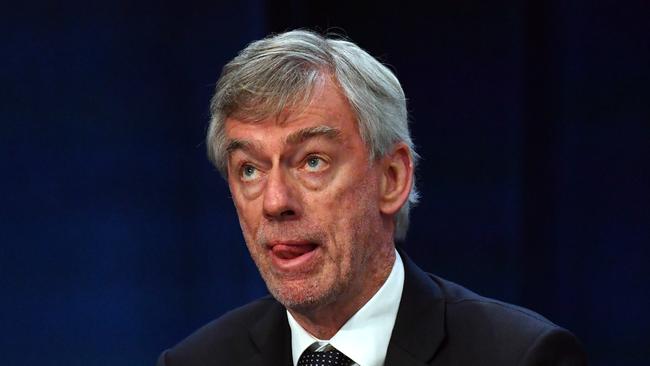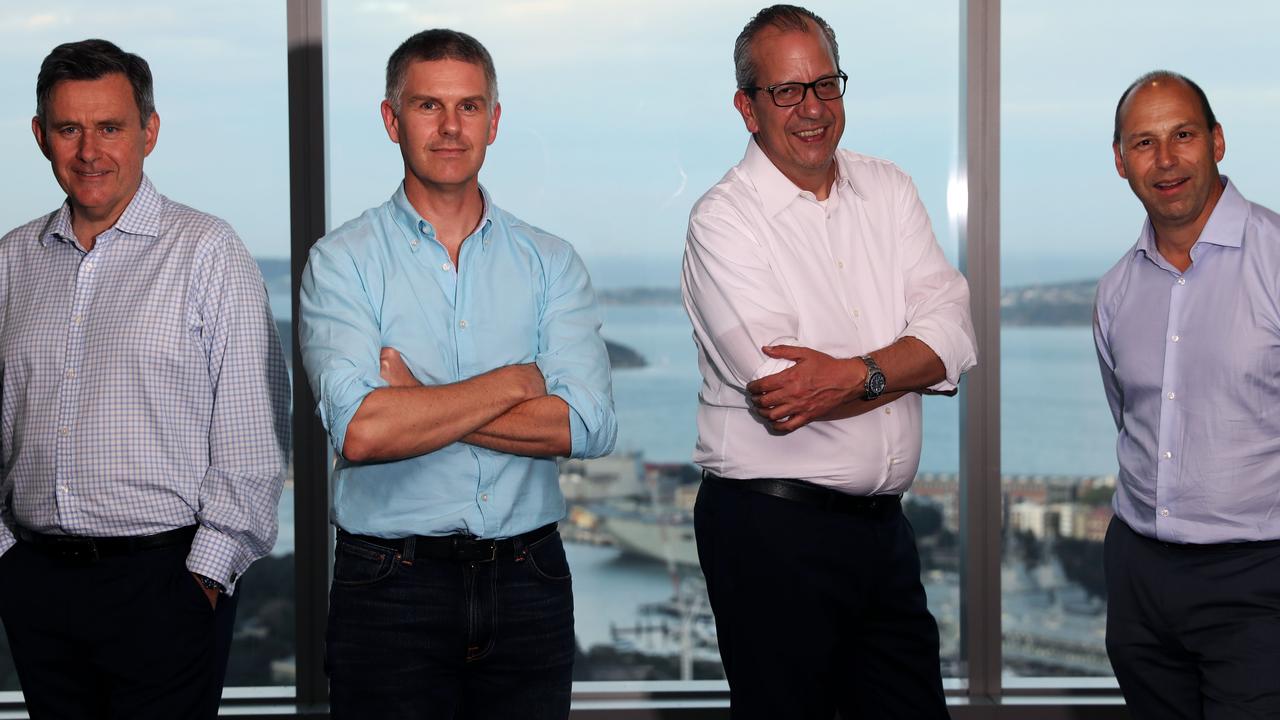Industry funds deliver a lifeline to Westpac board
The support of three influential super funds was a key factor in Peter Marriott’s re-election to Westpac’s board.

When the nation’s industry superannuation funds lined up in support of a wounded Westpac board on Thursday, former Labor prime minister Ben Chifley would have turned in his grave.
Chifley’s failed bank nationalisation plan was conceived in the bitter aftermath of the Great Depression.
Loathing of the banks, fanned by a perception that they had abandoned ordinary Australians, was even more virulent and deep-seated than it is today.
More than 70 years later, industry super funds have passed up an opportunity to deliver the coup de grace to one of the labour movement’s historic oppressors, already weakened by some ritual boardroom bloodletting due to the Austrac crisis.
Westpac is expected to pay a penalty of about $1bn for 23 million breaches of anti-money-laundering laws, along with links to child exploitation in The Philippines by facilitating payments for 12 suspicious customers.
Since the November 20 statement of claim, chief executive Brian Hartzer has left the building, chairman Lindsay Maxsted has brought forward his retirement to the first half of 2020, and non-executive board member Ewen Crouch has decided not to seek another term.
The 36 per cent vote against the remuneration report on Thursday ensured the 202 year-old lender suffered the indignity of second strike, but it was largely symbolic compared to the chaos of a board spill.
The spill resolution barely even troubled the scorers, attracting an overwhelming “no” vote of 91.2 per cent. So much for the eternal war between labour and capital, particularly when it comes to retirement savings.
We’re all capitalists now.
Industry funds might be united in their not-for-profit structure but they’re divided in their voting intentions at company annual meetings. They don’t vote as a bloc.
Still, there’s a concern in some parts of corporate Australia — and in senior Coalition ranks — that member engagement with super is extremely low, enabling the industry funds to wield extraordinary power.
This apprehension applies in particular to “progressive” or “fringe” environmental, social and governance issues.
A classic case occurred last February, when the ACTU pressured 30 industry funds to exert pressure on BHP to guarantee the jobs of local seafarers.
Treasurer Josh Frydenberg expressed alarm to Australian Prudential Regulation Authority chairman Wayne Byres, seeking urgent advice as to whether the regulator had sufficient powers to ensure trustees were acting in the best interests of members.
The truth is that ESG risks have gone mainstream — they’re far from just an industry-fund obsession.
Variability in voting patterns can also be seen in the Westpac case.
The nation’s largest super fund AustralianSuper, which holds $1.8bn in Westpac shares, supported the full slate of board-backed resolutions.
Of the director polls, the re-election of long-serving non-executive director Peter Marriott was the most controversial.
AustralianSuper backed audit committee chairman Marriott because it believed that the board accountability axe had fallen, at least for the time being, and stability was important pending the completion of an independent review by Promontory Financial Group.
The $54bn fund Cbus, which is home for the retirement savings of more militant construction and building industry workers, was like-minded, as was Hostplus which manages $43bn on behalf of hospitality and tourism industry workers.
The support of these three influential funds was a key factor in Marriott’s victory, albeit with a 42 per cent protest vote.
HESTA, with $53bn in member assets held on behalf of health and community service workers, saw things differently, declining to support any of the resolutions.
It voted its $550m of Westpac shares against the longer-serving directors (Marriott and Nerida Caesar) and abstained on the two directors with shorter tenures (Steve Harker and Margaret Seale). HESTA also voted against the remuneration report, while abstaining on the vote to spill the board.
Chief executive Debby Blakey says it’s incumbent on investors like HESTA to send a clear message to boards on appropriate standards of behaviour, accountability when things go wrong, and setting the right culture.
“It’s still early days and we haven’t seen the accountability review, which is why we voted against the directors we felt strongly about and abstained from the others to ensure there’s some stability,” Blakey says.
“Individual funds are best-placed to know what’s appropriate for their members.
“We always put our members’ interests first and they dedicate their lives to helping vulnerable people, so the Westpac case resonated for them.
“The destruction of shareholder value has also been significant.”
Like AustralianSuper and other funds, HESTA has an internal “responsible investment” team.
It focuses on company resolutions and is integrated with the investment management team, also considering the views of proxy advisers and the industry body, the Australian Council of Superannuation Investors.
Blakey counts engagement with companies, including Maxsted in the Westpac case, as a critical part of the voting process.
Byres from APRA agrees with Frydenberg’s complaint about the BHP maritime workers.
He says super funds trustees were legally obliged to act in the best interests of members.
“APRA therefore expects that trustees will carry out their role and meet their responsibilities free from the influence of sponsoring organisations or any other external parties,” the APRA chair wrote in a letter.
“Any evidence of trustees potentially giving priority to anything other members’ interests and the provision of retirement incomes would be of concern.”
Blakey, for her part, says there is no question that HESTA is a mature organisation that fully comprehends its legal obligations.
“Our focus is entirely on making a difference to the financial wellbeing of our members,” she says.


